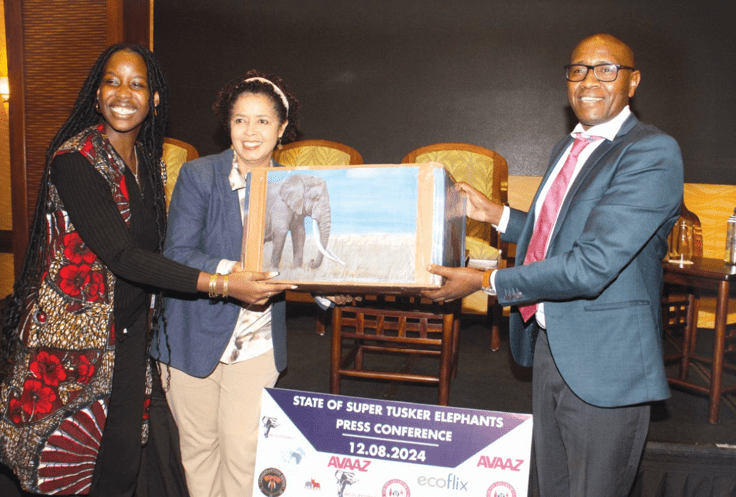Scientists want Tanzania to halt elephant hunting permit
By Milliam Murigi, August 13, 2024Kenyan scientists and conservationists have urged the Tanzanian government to stop issuing hunting permits for big-tusked elephants as they threaten the survival of these iconic species.
This call comes after five super tuskers were killed in Tanzania following the issuance of hunting permits for super Tuskers in the Greater Amboseli–West Kilimanjaro elephant population.
Super tusker is not a scientific term but a term used to denote elephants with massive tusks weighing around 45 kg (100 lbs) each. This herd is a cross-border population that migrates between the western parts of Mount Kilimanjaro in Tanzania and Amboseli National Park in Kenya, an area stretching 30,000 sq km.
“The five were targeted, hunted and killed by trophy hunters in Northern Tanzania in the last eight months. We know that more permits are set to be issued imminently. That is why we are asking our neighbours to end trophy hunting of elephants,” said Dr Paula Kahumbu, CEO of WildlifeDirect.
Amboseli ecosystem
Available data shows that with the death of the five, only 10 super tuskers are now remaining in the Amboseli ecosystem which has the highest density of these animals. If licensing continues these species will disappear within the next three years according to Dr. Kahumbu yet they play a significant ecological and economic value since they are a unique genetic reservoir that transcends national borders.
She also reveals that while the management of elephants in Tanzania is recognized as the sovereign duty of the Tanzanian government, the government needs to know that this population is shared because the super tuskers are cross-border species and their protection has been achieved for three decades through a bilateral agreement.
“So far we have lost a significant gene pool because these species are carriers of genes for the big tusks and losing them means that we will end up seeing potentially fewer and fewer of these tusks. The main threat is losing the gene pool and not the population dynamics,” said Dr Festus Ihwagi, Senior Scientist and Research Policy Lead at Save The Elephants.
Until 2023, there had been a 30-year period of no elephant hunting incidences reported. The recent hunting wave was triggered by a new quota that was issued in 2022 to Kilombero North Safaris. The last unfortunate super tusker hunting incident was in 1994 leading to an international outcry when four well-known elephants (RBG, Sleepy, Saibulu, and Oloitipitip), subjects of the Amboseli Elephant Research Project, were shot by trophy hunters on the Tanzanian side of the border. As a result of public outcry, in 1995, a moratorium on trophy hunting of this transboundary elephant population was agreed between the two nations.
“The recent killings of super-tuskers are particularly concerning due to the rarity and special role these older males play in elephant society. Male elephants grow till 40 years of age, which is the start of their breeding peak,” stated Dr. Joyce Poole, Scientific Director of Elephant Voices.
Available data, studied over 50 years under the Amboseli Elephant Research Project, show that males between 35 and 55 years of age are prime breeders. Even males in their sixties are sexually active. It is these older males that sire the majority of offspring. Therefore, the elimination of senior male elephants can cause serious problems, such as disrupting family groups and social stability.
“Females prefer to mate with older males and it is the male’s longevity that determines his reproductive contribution and passing of genes promoting longevity to the population at large,” says Poole.
Hunting permits are regulated by the Tanzania Wildlife Management Authority (TAWA) and the Tanzania National Parks Authority (TANAPA). The process involves permits issued to sport and professional hunters, notably tourists in specific hunting blocks, for a specified time aligned with the hunting season.
The permits are specific to the species being hunted, with strict quotas and limits set to ensure sustainable wildlife management, according to the government.
